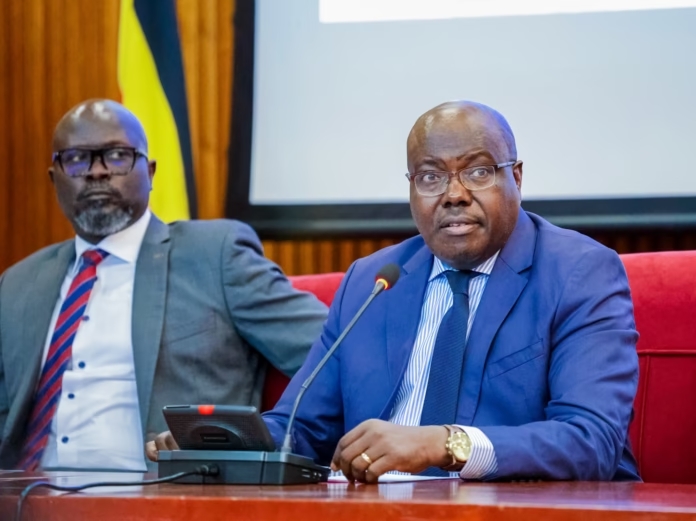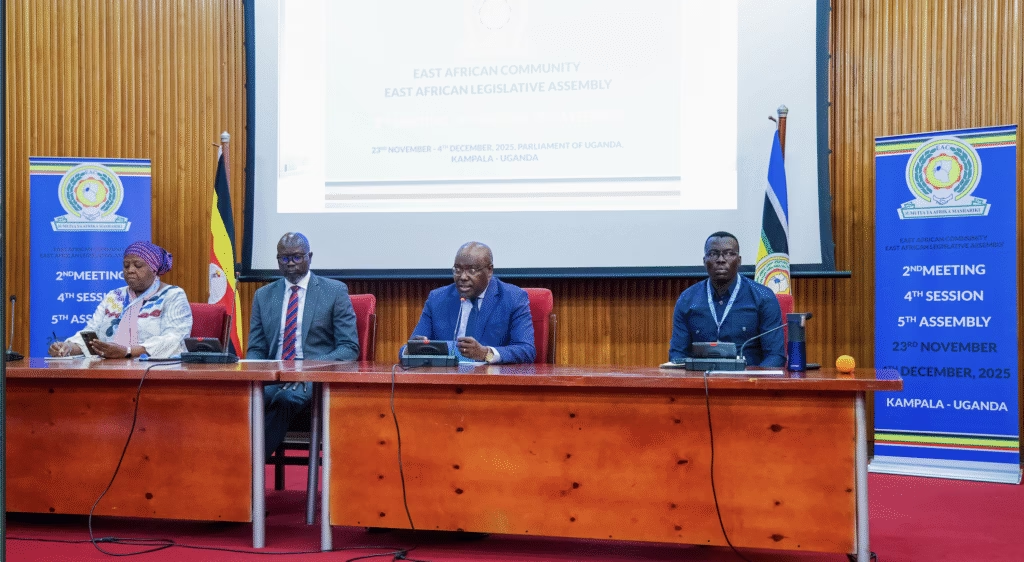
KAMPALA, Uganda — The East African Legislative Assembly (EALA) on Monday opened its Kampala sitting with lawmakers set to debate a motion seeking a regional framework to regulate and promote responsible use of social media, a proposal emerging amid rising concerns over misinformation, political tensions and cross-border digital disputes in the East African Community.
The motion is among the headline items in the Assembly’s two-week sitting from Nov. 24 to Dec. 5, which Uganda is hosting under EALA’s rotational arrangement. While the treaty requires at least one annual sitting in Arusha, the rotation allows the Assembly to operate in partner states on a periodic basis.
Speaker Joseph Ntakirutimana told reporters the Kampala session comes at a time when several EAC states are navigating elections and political transitions. He noted recent political transitions in Burundi and Tanzania, where two EALA members were appointed deputy ministers, and ongoing campaigns in Uganda, where three EALA members are contesting parliamentary seats.

The proposed motion on social media aims to address gaps in national laws and the lack of harmonized regional standards governing digital speech, online safety, and cross-border misuse. Lawmakers say the absence of a regional framework complicates law enforcement, and political cooperation in a bloc where online disputes frequently spill over borders.
The Assembly will consider a range of other legislative and oversight matters, including reports on the Standardization, Accreditation and Conformity Assessment Bill; examination of audited EAC accounts for the 2022 and 2023 financial years; and annual reports covering the 2021–2024 period for EAC organs and institutions. Motions on women in cross-border trade, creation of the East African Common Higher Education Area and industrialization policies are also on the agenda.
Questions on political tensions and trade disputes surfaced during the press briefing. Rwandan legislator Fatuma Ndangiza said the community already deploys election observation missions and has mechanisms for addressing disputes, but emphasized the need for harmonized policies. “There is need to have harmonization in various areas… Conflicts at the borders related to doing business continue, but despite the challenges, it is the fastest-growing community in the region,” she said.
Ugandan MP George Odongo said concerns about strained relations between members states fall within both national jurisdictions and regional principles of good governance. However, he stressed that the Assembly only handles grievances filed formally through petitions. “We can’t read it in the newspaper, we can’t read it on social media and make it a matter that we interrogate,” he said. Odongo added dealing with disputes between two member states is a matter of bilateral concern. “Our treaty provides and protect East Africans. It is in our principles of treaty to ensure that there is good governance, good neighbourliness and equal treatment of our citizens.”
Trade related disputes between member states including politically charged statements, conflicting border narratives have increasingly tested bilateral relations. Odongo said these issues are often handled through direct government-to-government engagement. “There is a very active engagement between the government of Uganda and that of Kenya on a wide range of issues,” he said, adding that the Assembly’s role is to strengthen consistency between regional protocols and national implementation.
Outside the plenary, EALA will conduct an anti-corruption sensitization event at Nkumba University on Dec. 1 and hold public engagements on investment schemes, women’s labor rights and efforts to eliminate female genital mutilation.
Debate on the social media framework is expected to dominate the session as lawmakers weigh how to balance digital freedoms, public order and regional cooperation in an environment where online communication continues to shape politics and commerce across the bloc.


